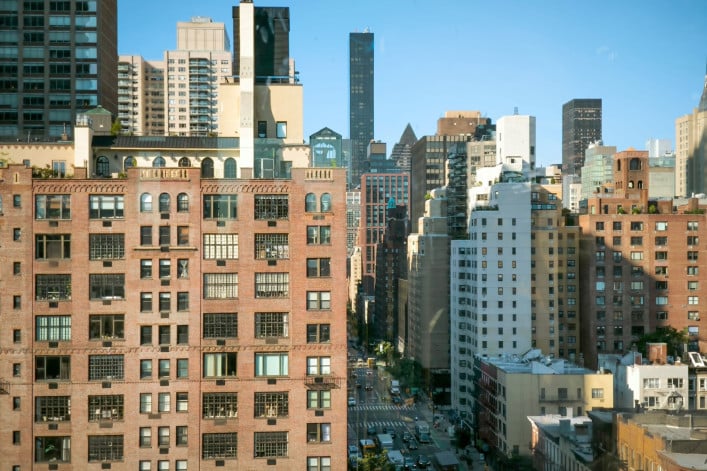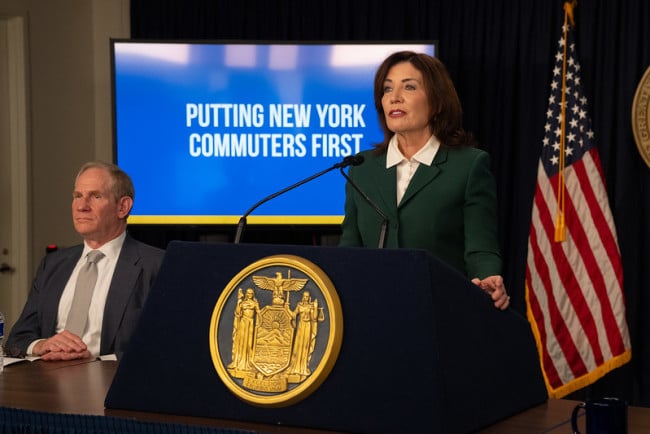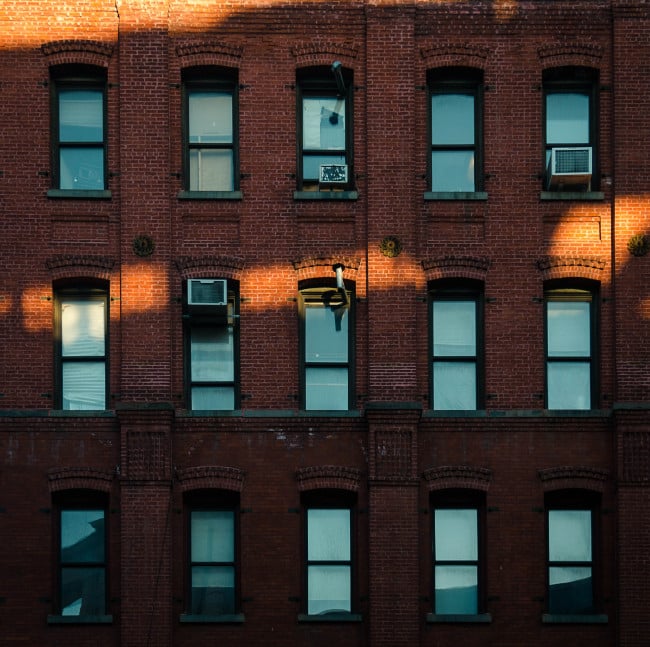What a second Trump presidency could mean for NYC renters
- New York could see more limited funds for public housing programs and buildings
- Construction could slow under new tariffs, stricter immigration rules, and deportations
- It is illegal for landlords to threaten to call ICE on an undocumented person in New York

NYC Comptroller Brad Lander estimates that there are more than 500,000 undocumented immigrants in NYC.
iStock
The return of Donald Trump to the White House could have a major impact on New York City renters—changes that have city officials, advocates and economists concerned about the city’s future.
President-elect Trump made myriad campaign promises, including to carry out the “largest deportation operation in American history,” build housing on federal land, cut taxes, and impose big tariffs on imports. Many of these policies could hamper housing construction and cut public housing programs, said NYC Comptroller Brad Lander.
“The different policies hit different segments of working class and middle class New Yorkers, and I think they wouldn't all be bad for housing affordability,” Lander said.
The new Trump administration plans to focus on cost cutting, with Elon Musk and Vivek Ramaswamy looking to fire federal workers, slash regulations, and cut $2 trillion from the federal budget. Those proposals, as well as additional tariffs and stricter immigration policies, could have significant impacts on NYC’s rental market just as NYC looks to build thousands of units under the newly approved City of Yes housing development plan.
Read on for an overview of what to expect based on Trump’s current proposals, and previous policies from his 2016 administration.
Public housing programs
The New York City Housing Authority both provides affordable housing at 2,411 buildings across the city and administers the Section 8 housing voucher program, which pays for part of a low income tenant’s rent, according to the authority.
It also counts on receiving more than half of its funding from federal sources, including the Department of Housing and Urban Development, according to a city report on NYCHA’s 2024 to 2028 capital plan.
During the first Trump administration, the Department of Housing and Urban Development (HUD) Secretary Ben Carson proposed budget cuts of 13 to 18 percent to HUD. Similar cuts in 2024 would “pose particular threats” to NYCHA, Lander wrote in a report on how Trump’s policies would impact NYC.
“Giant budget cuts—both to public housing, vouchers, and federal housing subsidy programs—would be devastating for families who live in NYCHA, for families who are receiving Section 8, and for families on the waiting list desperate for affordable housing,” Lander said.
Put plainly, cuts to HUD would “severely” diminish NYCHA’s ability to make repairs to its buildings, and curtail the number of new vouchers NYCHA could issue, Lander said. (Though it’s worth noting that City of Yes, NYC’s ambitious housing plan, includes state money for infrastructure, affordable housing programs, and repairs for NYCHA buildings.)
Cuts to Section 8 or HUD’s Continuum of Care program, which funds homeless services, could worsen NYC’s homeless crisis, said Henry Love, vice president of public policy and strategy for Win, a NYC shelter provider that houses more than 5,000 New Yorkers per night.
“These are not just for homeless folks, but these are going to have major implications for working class New Yorkers,” Love said. “There’s going to be budgetary cuts to all these programs that are integral to the social safety net, especially in the most expensive city in the world.”
Undocumented renters
For undocumented renters, the threat of mass deportations looms large, particularly for the more than 200,000 families with children who are U.S. citizens living in NYC, according to the comptroller’s report.
“There's lots of folks who are undocumented throughout the system, so our big fear is what's going to happen to those families if he's moving forward with his plans for mass deportations,” Love said.
Attorneys and advocates at the annual conference Housing Court Answers in November said they were worried that landlords would be able to use the threat of deportation to evict undocumented renters—though doing so is illegal in New York State.
And attorneys and advocates said they were concerned the threat of deportations could be enough to scare renters.
“Isn’t it really effective that they tell people there’s going to be mass deportations?” said Adriene Holder, chief attorney of the civil practice at the Legal Aid Society at the November conference.
Beyond deportations, Love said he worries that the administration will make it illegal for households with an undocumented family member to live in federally assisted housing—a proposal put forth in the Heritage Foundation’s Project 2025 policy booklet.
That could result in more evictions for those who benefit from Section 8 or live in NYCHA buildings, Love added.
Those renting with someone who is undocumented, or those who are undocumented themselves, should know their rights. Threatening to report a person to ICE is illegal in New York State, and a landlord cannot evict someone because of their immigration status, according to New York Attorney General Letitia James.
Love also encouraged New Yorkers to make a plan for the “worst-case scenario.”
“If that means trying to figure out a guardian situation for kids, making sure they have all their documents ready and prepared, or it might be a host of things,” Love said. “What is the plan if that is to happen?”
A slowdown in housing construction
Mass deportations will likely have another impact—a slowdown in NYC’s economy, said Barbara Denham, the senior economist for cities and regions at Oxford Economics, at an Urban Land Institute forum in November.
“We forecast subdued growth ahead, largely due to weak demographics and lower immigration,” Denham said at the November 14th forum.
There are likely more than 500,000 undocumented immigrants in NYC, many of which work in the construction and hospitality fields, according to Lander’s report. Less immigration, more tariffs, and deportations will all make it more difficult to build new housing, added Lander.
But those impacts depend on how severe the Trump administration’s policies are—and how effective City of Yes is at spurring construction.
“Huge tariffs would drive up the cost of housing construction substantially and mass deportation would drive the cost of construction labor, and therefore housing, up substantially,” Lander said. “That has a medium and long term impact on market affordability.”
Trump has said he wants to increase the construction of new housing by opening up federal lands for building and improve housing affordability by removing regulations. But that push tends to focus on single-family homes, which are less common in the city, Love added.




























